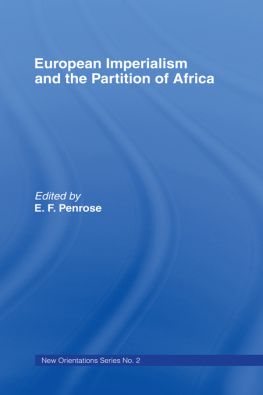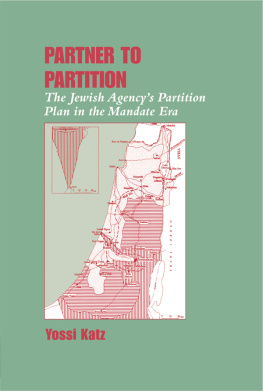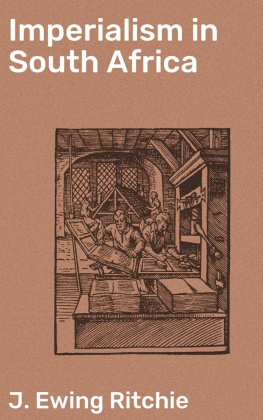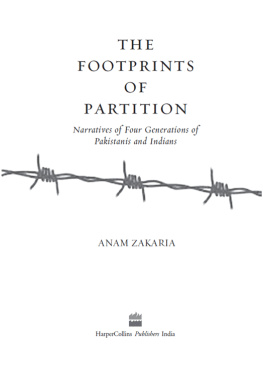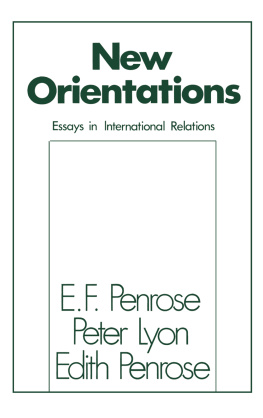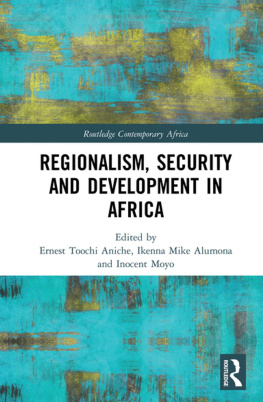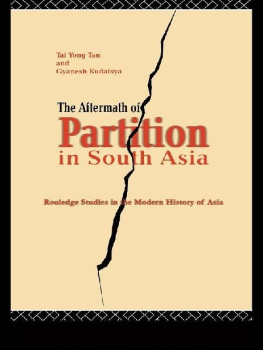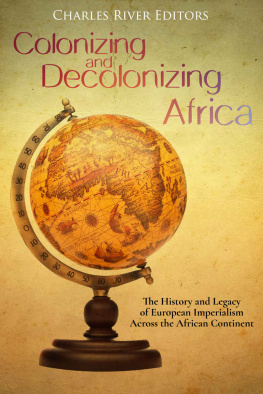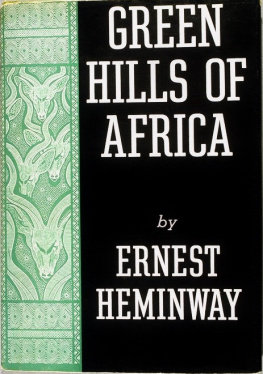NEW ORIENTATIONS SERIES NO. 2
EUROPEAN IMPERIALISM AND THE PARTITION OF AFRICA
The New Orientations Series
Editors:
E. F. Penrose
Peter Lyon
Edith Penrose
New Orientations is a series devoted to critical essays on international relations, written for the educated public as well as for specialised students of international affairs and international history.
No. I
NEW ORIENTATIONS: ESSAYS IN INTERNATIONAL
RELATIONS
Edited by E. F. Penrose, Peter Lyon and Edith Penrose
The first volume in the series contains a global overview by Peter Lyon and studies of Britains place in international relations by E. F. Penrose, of Vietnam by Jacques Decornoy and of international economic relations by Edith Penrose.
First published 1975 in Great Britain by
FRANK CASS AND COMPANY LIMITED
2 Park Square, Milton Park, Abingdon, Oxon, OX14 4RN
and in the United States of America by
FRANK CASS AND COMPANY LIMITED
270 Madison Ave,
New York NY 10016
Transferred to Digital Printing 2006
Copyright 1975 The Contributors
ISBN 0 7146 3058 6
All rights reserved. No part of this publication may be reproduced in any form or by any means, electronic, mechanical, photocopying, recording or otherwise, without the prior permission of Frank Cass and Company Limited in writing.
Publishers Note
The publisher has gone to great lengths to ensure the quality of this reprint but points out that some imperfections in the original may be apparent
Preface
This collection of essays on, or related to, the European Partition of Africa, has been previously published in the Journal of Imperial and Commonwealth History, Vol. III, No. 1 (October 1974). The essays were originally commissioned from their authors by Professor E. F. Penrose.
The authors, and the Editor of the Journal of Imperial and Commonwealth History, wish to record their thanks to Professor Penrose, not only for his kindness in permitting the publication of this material both in the Journal and in its present form, but also for his original initiative and continuing interest, without which some at least of these essays would probably never have seen the light.
G.N.S.
The European Partition of Africa: Coincidence or Conjuncture?
by
G. N. Sanderson*
I: The Problem
The sudden, rapid and almost complete European partition of Africa in the last two decades of the nineteenth century is interesting not only as a spectacular episode in European history and, more importantly, as a major event in African history; but also because it seems to present a crucial test of the historians ability to explain and interpret the events that he traces.
The partition takes place over a period so brief that the links between the detailed monograph and the synoptic survey are considerably closer and more substantial than in some comparable fields of investigation, and so recent that the documentary record has survived almost intact. The official record, in particular, is especially complete and revealing, coming as it does from a period when departmental papers were carefully and systematically preserved but just before the widespread use of the telephone began to discourage the art of thinking and communicating on paper. Virtually the whole of this material has for some time been accessible to scholars. So have the private papers of most of the European policy-makers; and the records of many, though not all, of the unofficial organisationscommercial, religious, philanthropicwhich were interested in Africa before and during the partition. Moreover, much of this material had already been studied and analysed in published monographs and doctoral dissertations.
In short, the conditions for a general explanation of the partition of Africa are just about as favourable as they could possibly be. A varietyindeed, an embarrassing varietyof such interpretations has in fact been put forward. The most stimulating of these have emerged from the detailed study of some important episode in the partition, or of the origins and development of partition in some comparatively restricted area. But to promote conclusions derived from the study of a limited field to the status of general explanations of the partition is obviously a very risky undertaking. Not surprisingly, general theories derived from special studies differ from one another not merely in nuance and emphasis, but on fundamentals.1 Moreover, no general theory has successfully accounted for all the observed phenomena; and many of them have failed to grapple with certain problems whose solution is an essential part of any satisfactory general explanation.
Faced with this situation, some historians have abandoned the quest for a general theory, and have asserted that one cannot go beyond studying each particular case of annexation as a special problem. If this procedure fails (as it does fail) to explain why cases of annexation suddenly and unexpectedly became epidemic in the 1880s, there is simply nothing we can do about it.2
This is a discouraging conclusion; but any serious acquaintance with the facts does suggest very strongly that the plurality of the causes of partition is indeed irreducible. It is however possible to ask questions about the partition which, in principle at least, do not rule out the possibility of general answers in spite of the existence of special reasons for each particular case of annexation:
(i) Why did the partition begin when it did (c. 187980), after a long period when the European Powers had normally taken only the most languid interest in Africa?
(ii) Why, when the partition had once begun, did its pace accelerate so rapidly that within two decades it had engulfed almost the whole continenti.e., why did the partition develop into a scramble?
Quite apart from the operational value of these questions, any general theory worthy of the name ought to include precise and empirically verifiable answers to them. By no means all of the general theories even attempt to do this.
II: General Theories of the Partition of Africa
These are usually divided into the two categories of Eurocentric and Afrocentric theories; but it is also useful to distinguish between theories based more or less directly on detailed African case-studies, and the more general background theoriessome of which are indeed theories of imperialism rather than specifically of the partition of Africa.
A. Background Theories
A satisfactory general theory (whether background or other) must be able to demonstrate that between about 1875 and 1900 circumstances in Europe, or in Africa, or in both continents, differed from those of the pre-1875 period in ways which can be directly linked with specific annexationist decisions by the European policy-makers. General theories which rely upon broad, macroscopic, developmentssocio-political, economic, ideological, technologicalin the European and African backgrounds, find it especially difficult to establish this close connection. In particular, their answers to the question why did the partition begin when it did? are usually very unsatisfactory. For instance, had the technological gap between European and African societies been non-existent or negligible, no partitionand certainly no scramblewould have taken place. At the time of the partition this gap was doubtless wider than ever before; but it had already been very wide for at least a century. The technological gap may help to explain the pace of partition; it does not explain why the policy-makers of half a dozen different European states should suddenly and almost simultaneously have decided to profit by it, after having ignored it for so long.3


